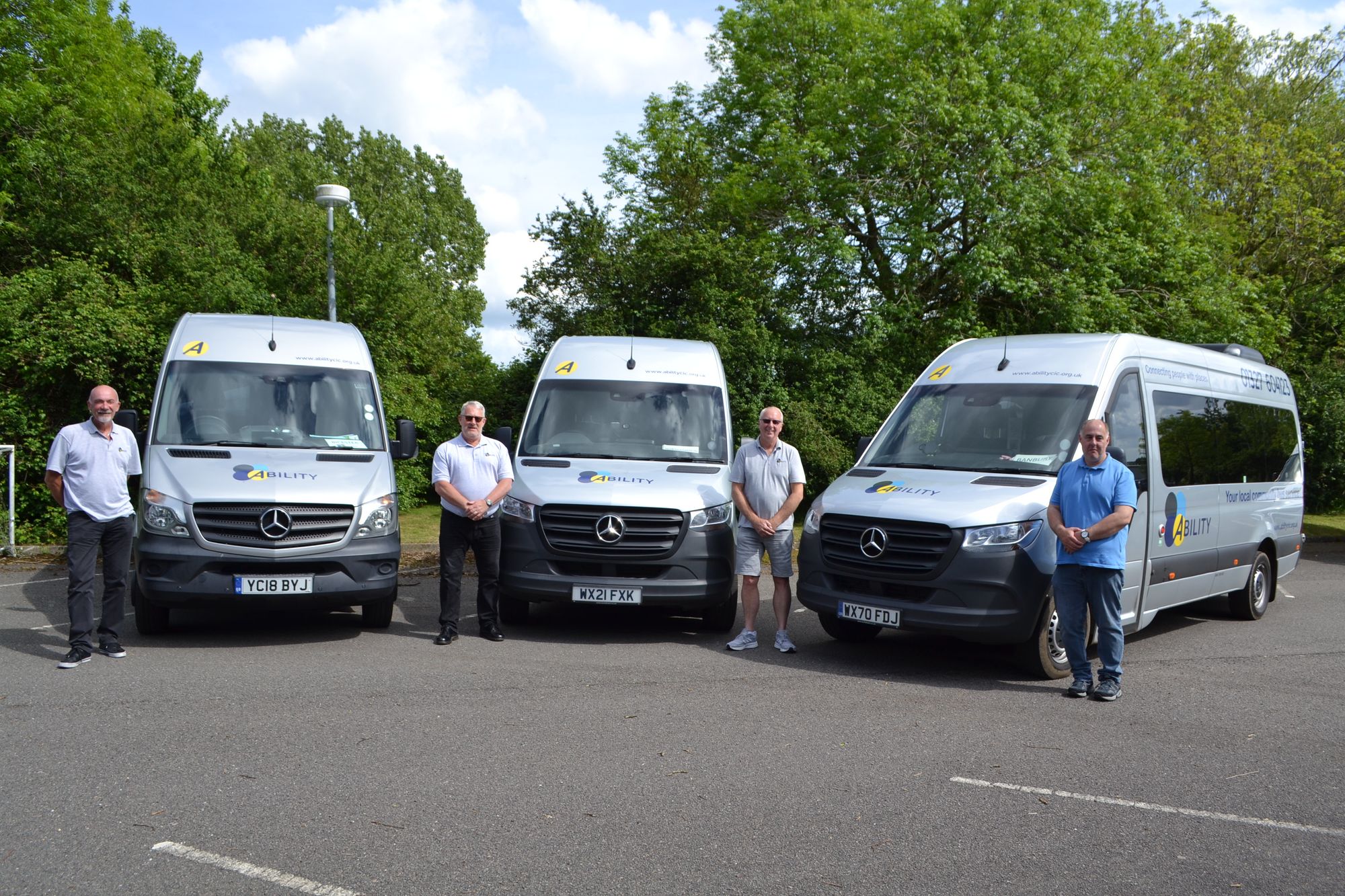More Demand, Demand More

In October, Peter Doveston encouraged us to write to our MP to ask why West Northamptonshire Council does not receive appropriate funding for public transport. Continuing his exploration of bus services, Peter talks to two local councillors and the provider of an on-demand bus service.
Social concern and competitive edge, a frequent tension in the pursuit of quality public services. Fundamentally, we need public transport to get us where we need to be within a suitable timeframe. At the same time however, it is clearly not right to have near empty buses tracking back and forth along seldom used routes. It is not commercially viable nor environmentally friendly.
We see this tension manifesting itself in Northamptonshire. Bus services such as the 200 from Daventry to Banbury and the Sunday service 88 to Silverstone are under constant threat of being cut. The people who rely on such routes are rightly concerned but there are legitimate questions about these service’s sustainability. I spoke to Councillor Holland-Delamere, a member of the council’s Cross-Party Bus Strategy Group and West Northants Labour Transport Spokesman, to see if I could get a sense of the problem.
We live in a disparate county. ‘Villagers in Middleton Cheney do not look to Northampton as a centre, they look to Banbury’ the Councillor points out, yet the village is within the boundaries of West Northants. This point alone is worthy of reflection. As an urbanite my views on what a bus service should be are different to those who reside in the countryside. From what Councillor Holland-Delamere tells me, our current model for servicing the villages is too rigid. ‘If we take Northampton as an example’ the Councillor says ‘what do people from the villages come here for? The theatre? The shops? How can we tailor our services to meet the demand more flexibly?’
Lynn Hinch, a director of ABILITY a local Community Interest Company (CIC), may be onto the solution. ABILITY provides bus services to residents in North Oxfordshire and West Northants. It relies on a combination of membership fees, community grants and concessionary fare reimbursement to fund its activity. ‘We’re not a charity’ Hinch explains, ‘we have directors who are able to make executive decisions quickly and efficiently.’ Perhaps within this model we find the flexibility required to address the needs of the villages.
ABILITY has a fleet of modern mini-buses that run regular routes from the villages into local towns such as Banbury, Bicester, Brackley, Daventry, Towcester and Northampton. Their buses stop at familiar local locations and people who subscribe to the “Plus Service” membership can even be picked up nearer to their homes or from the door. The services respond to demand, where a person needs picking up within the area. They can contact ABILITY and the bus will come to that location, a versatility that other operators running fixed routes are unable to provide.
ABILITY is a not-for-profit organisation and does not pay out to shareholders but reinvests in the organisation. Indeed CICs generally are designed to put the community service first. Could it be green? ‘We’ve not seen anything on the market yet that could work to make our fleet fully electric. The price is £210,000 each’ Hinch says but then rightly points out that their current fleet is new enough to meet the latest emissions standards of Euro 6 and is much more efficient than commercial operators older fleet of buses - and ‘every person who comes on our buses means one less car on the road’. I could not agree more with her on this point! We all are worried about the climate and bus emissions is a contributor to it, we still see 25-year-old buses on school runs!
I still have questions, is this kind of service predominantly for concessionary users or could it work for commuters as well? I speak to Jonathan Harris, a Liberal Democrat Councillor for Brixworth Ward, who also sits on the cross-party Bus Strategy Group and has set up a service in his area through CommMiniBus. ‘Our service is centred around concessionary bus passes’ he explains ‘and there are significant administrative challenges to running the service’. This isn’t surprising. The increased flexibility of an on-demand service must have the drawback of having to respond to and collate multiple requests into realistic routes and timetables. The challenges in providing such a service to commuters are clear, it would have to be far more frequent and would need smart technological infrastructure to make it efficient and user-friendly. Then, as Councillor Harris points out, there are the cross-border issues. Negotiations would need to take place with the respective councils of Rugby, Market Harborough, Banbury and others. Challenges certainly but not insurmountable ones.
How could the Council assist these services? All three of my interviewees agree. Funding. Funding for infrastructure (individual buses require a large amount of capital), funding for administrative assistance, funding for fuel. The communities know where the buses need to go and who they need to serve, funding is the key.
My thanks to Councillor Holland-Delamere, Lynn Hinch and Councillor Harris for taking the time to speak to me.
